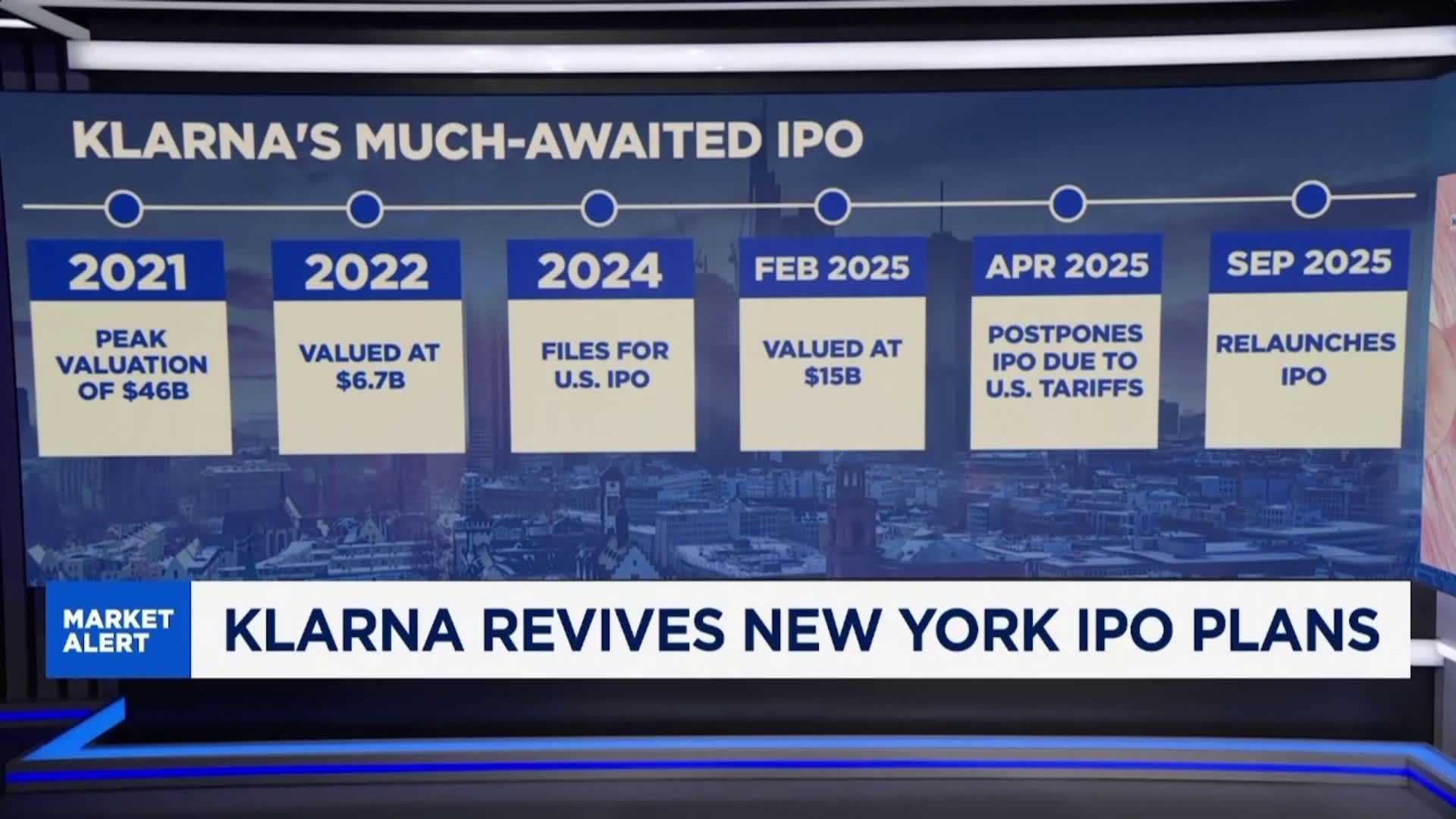Business
Klarna Prices IPO at $40 per Share, Valuing Company at Over $15 Billion

NEW YORK (AP) — Klarna priced its highly anticipated initial public offering at $40 a share late Tuesday, giving the Swedish buy now, pay later company a valuation exceeding $15 billion. This valuation positions Klarna as one of the largest IPOs of 2025, a year that has seen a surge in companies going public.
The $40 share price surpassed market expectations, which estimated the pricing would fall between $35 and $37. Founded in 2005 as a payments company, Klarna made its U.S. debut in the buy now, pay later market in 2015 through a partnership with department store operator Macy’s.
Since then, Klarna has grown rapidly, partnering with hundreds of thousands of merchants. Its services have been integrated into internet browsers and digital wallets, providing a viable alternative to traditional credit cards. Recently, the company announced a new partnership with Walmart.
Klarna’s most popular product is the “pay-in-4” plan, allowing customers to divide a purchase into four payments over six weeks. The company also offers longer-term payment plans that include interest charges. This business model has gained international traction, with 111 million consumers globally using Klarna for purchases.
Prior to its public offering, Klarna reported second-quarter revenues of $823 million in August, along with an adjusted profit of $29 million. The company is set to begin trading under the symbol “KLAR” on the New York Stock Exchange.
Klarna’s decision to list on U.S. markets signals its executives’ belief that American shoppers represent a significant growth opportunity for the company. Following its IPO, Klarna will become the second-largest buy now, pay later firm on U.S. public markets, trailing only Affirm.
Affirm’s shares have appreciated by over 40% this year, bringing its market value to approximately $28 billion. This growth reflects investor confidence that buy now, pay later companies could capture market share from traditional banks and credit cards.
Klarna received backing from major investment banks, including JPMorgan Chase and Goldman Sachs.












